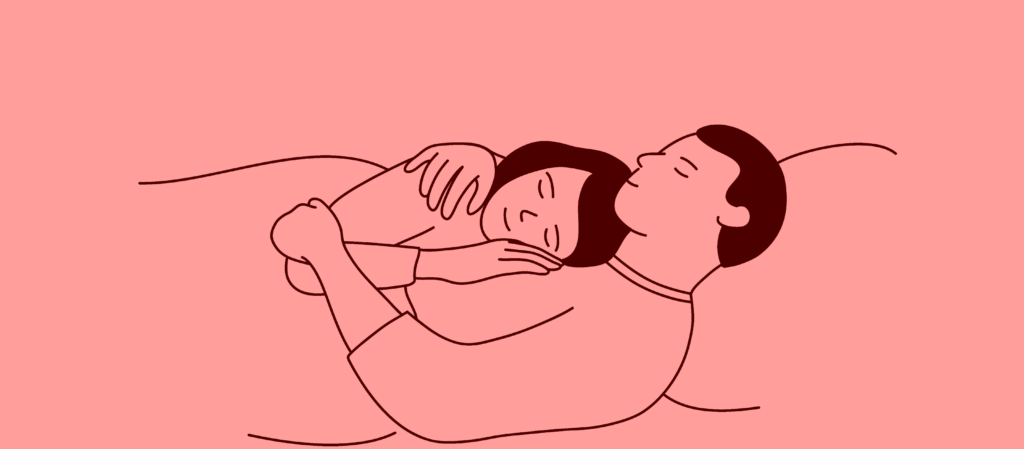According to the CDC, only one third of Americans get enough sleep every night. “Sufficient sleep” is defined as at least seven hours per night. When you don’t get a good night’s sleep, it’s tempting to want to “make up for it” later. Drinking extra caffeine, taking long naps, and sleeping in on the weekends are common methods of counteracting sleep deprivation. Unfortunately, these strategies tend to dig us into a hole: they make us crash, and even make it harder for us to fall asleep later. If you are looking for consistently high quality rest, consider creating a sleep hygiene routine.
What is sleep hygiene?
Sleep hygiene is a variety of behaviors to promote a good night’s sleep. These behaviors, when consistently done, help the body maintain a healthy circadian rhythm (Brown et al., 2002; Pilcher et al., 1997). These behaviors include:
getting regular physical movement
reducing caffeine intake
reducing stimulants such as alcohol and nicotine
limiting naps during the day
getting enough exposure to natural light throughout the day
keeping your bedroom cool
It can feel unrealistic to maintain all aspects of good sleep hygiene. Even more so, some recommendations, such as the temperature of our bedroom or exposure to sunlight, may be too outside of our control to effectively change. However, sleep hygiene research emphasizes three important and controllable behaviors for improving our nighttime routine:
#1: Strict bedtime and rise time
If there were just one tip for getting a good nights sleep, it would be to go to bed at the same time every night and wake up at the same time every morning (Mastin et al., 2006). Even on weekends. Even on holidays. Even if you didn’t sleep at all the night before. Yes, you read correctly. It seems counter intuitive to deny yourself sleep when you’re tired and want to sleep in, but here’s the thing: our bodies have their own internal cycle, the circadian rhythm. This cycle is roughly 24 hours long, and pays attention to environmental and behavioral cues to regulate the body in many ways, including when to sleep (Touitou et al., 2016). When we give the body consistent cues each day about when we want to be sleeping, it will learn to adhere to this schedule. Even a few days of staying up late or sleeping in can knock the body’s rhythm off it’s schedule. If you regularly change your sleeping hours, the body won’t know when to prepare for bed.
In the beginning of establishing a sleep schedule, this can be very challenging. It can take up to several weeks for the body to adjust to a specific bedtime. But even if it takes hours to fall asleep, it is important to wake up at your planned time and stick to this daily sleep routine. Just like when one is adjusting to a new time zone, it is important to push through the jet-lag and wait until bedtime to catch your next z’s.
#2: Save your bed for sleep and sex
Those who are religious or spiritual often have a sacred space to engage in their practice. These spaces, such as a chapel, meditation hall, or even a spot in nature, are a place for us to purposefully connect with life. No matter the location or practice at hand, there are universal rules about what is allowed during that time. For example, it is not the place to fight with your spouse, to check facebook, or take a work call.
Similarly, it is important to save your bed for the sole purpose of sleep and sex, and allow no other distractions into that space (Mastin et al., 2006). The more we are able to leave other distractions behind, the more we are giving our body cues that this is where we go to rest. When we check email or get in an argument with our partner in bed, however, our sleep space becomes associated with stress and stimulation. This can make it harder for us to wind down when it comes time.
#3: Reduce technology use, especially before bed
Light exposure is a very important part of our body’s circadian rhythm regulation (Touitou et al., 2016). Melatonin, a hormone that regulates our sleepiness, relies on light exposure to know what time of day it is, and in turn, where we are in our sleep cycle. When we are exposed to bring light, the body knows it is not yet time to increase melatonin secretion, and waits until a period of darkness before preparing the body for sleep.
Unfortunately, the blue light emitted from computer screens confuses this cycle. Spending time using technology before bed delays the secretion of melatonin, which means our sense of sleepiness is also delayed (Touitou et al., 2016; Wood et al., 2013). Looking at a screen between midnight and 4am completely inhibits the secretion of melatonin until we put it away. Research shows that this effect on melatonin from screen time results in a greater sense of sleepiness throughout the day, a longer amount of time needed to fall asleep, and greater difficulty getting up in the morning (Chang et al., 2015).
For many people, taking some time in front of a device can feel like a relaxing and satisfying way to unwind at the end of a long day. It can also feel like an easy distraction when we find ourselves unable to sleep at night. However, this habit will only worsen our fatigue in the long run. So if you want to sleep well, step away from the screens, ideally two hours before bedtime.
It’s important to develop consistent sleep hygiene behaviors to improve sleep. I know what you’re thinking–these lifestyle changes seem like a lot of work. You may be tempted to go back to your short term solutions, to make up for sleep deprivation with quick fixes like caffeine and naps (even though they worsen your sleep schedule). But as much as we’d like to believe otherwise, when it comes to our daily health and well-being, nothing can quite replace a good night’s sleep.
References
Brown, C., Buboltz Jr, C., & Soper, B. (2002). Relationship of sleep hygiene awareness, sleep hygiene practices, and sleep quality in university students. Behavioral medicine, 28(1), 33-38.
Chang, M., Aeschbach, D., Duffy, F., & Czeisler, A. (2015). Evening use of light-emitting eReaders negatively affects sleep, circadian timing, and next-morning alertness. Proceedings of the National Academy of Sciences, 112(4), 1232-1237.
Mastin, F., Bryson, J., & Corwyn, R. (2006). Assessment of sleep hygiene using the Sleep Hygiene Index. Journal of behavioral medicine, 29(3), 223-227.
Pilcher, J., Ginter, R., & Sadowsky, B. (1997). Sleep quality versus sleep quantity: relationships between sleep and measures of health, well-being and sleepiness in college students. Journal of psychosomatic research, 42(6), 583-596.
Touitou, Y., Touitou, D., & Reinberg, A. (2016). Disruption of adolescents’ circadian clock: the vicious circle of media use, exposure to light at night, sleep loss and risk behaviors. Journal of Physiology-Paris, 110(4), 467-479.
{Cover art by Kika Fuenzalida}


